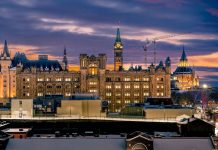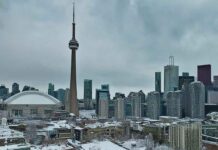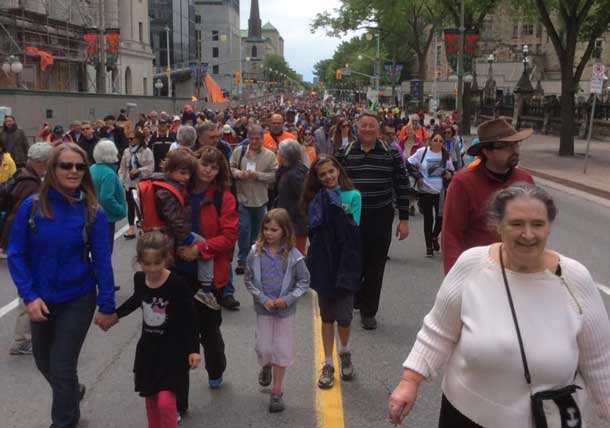
OTTAWA – Ten thousand people strong marched in Ottawa on Sunday as part of the Truth and Reconciliation Commission. For the past six years, the TRC has been across Canada, talking to survivors of Canada’s Residential Schools.
The walk on Sunday was by survivors in the spirit of healing and honour for all those who were in Canada’s Indian Residential Schools.
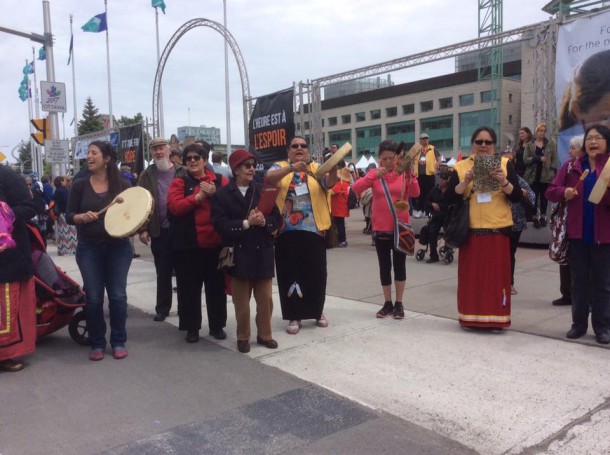
Assembly of First Nations National Chief Perry Bellegard, participated.
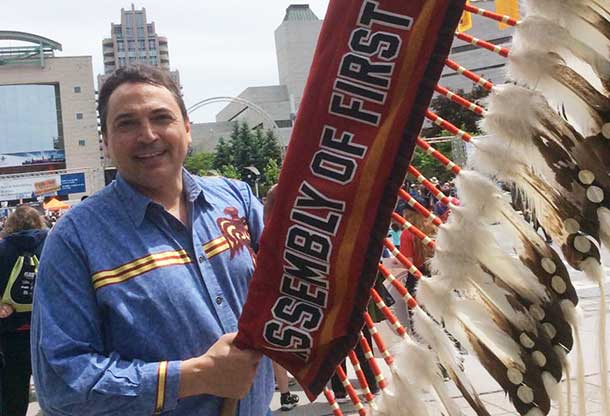
AFN National Chief Perry Bellegarde made the following statement regarding comments by Supreme Court of Canada Chief Justice Beverley McLachlin that Canada attempted to commit “cultural genocide” against Aboriginal peoples: “We fully agree with the Chief Justice’s statement that Canada’s treatment of our people is cultural genocide. The United Nations Declaration on the Rights of Indigenous Peoples affirms our right to not be subjected to forced assimilation or destruction of our culture – in essence, cultural genocide. The fact that the highest justice of Canada’s highest court is affirming this reality is tremendously powerful. Madam Chief Justice McLachlin’s understanding and recognition serve as a call to action for everyone in this country, including governments. It must inform the approach to policy making, law making and reconciliation that is required to move us all forward into a new Canada where First Nations children have the same opportunities as every other child in this land and where our rights, responsibilities and promises to one another are honoured and respected.”
Between the Indian Residential Schools and the issue of Murdered and Missing Aboriginal Women, there is a growing distance forming between Canada’s federal government and First Nations.
Lisa Bourque-Bearskin, President of the Aboriginal Nurses Association of Canada stated “As nurses, we have walked side by side with many survivors of residential schools and their families. Many of our Indigenous Nurses have also survived residential schools directly. We have treated and cared for many in our communities who have struggled to find healing and wellness.”
A.N.A.C. echoes the need for Reconciliation. Now that we have heard the truth, only by working together can we create the healing conditions that can turn this dark chapter and support Indigenous people to step into the light.
“Indigenous Nurses know all too well, that there are still many Indigenous people who do not have good health and wellness. Too many Indigenous people find themselves in poor housing conditions, experience a lack of gainful employment, or live in negative coping patterns because their wounds are too deep and they may lack support and understanding,” added Bourque-Bearskin. “Collectively, we can make a difference and turn their paths toward something better. Indigenous Nurses stand with Indigenous and non-Indigenous people across Canada to pledge our support, honour and commitment to continue to work hard in making a better future for Indigenous people by taking care of our needs today.”



